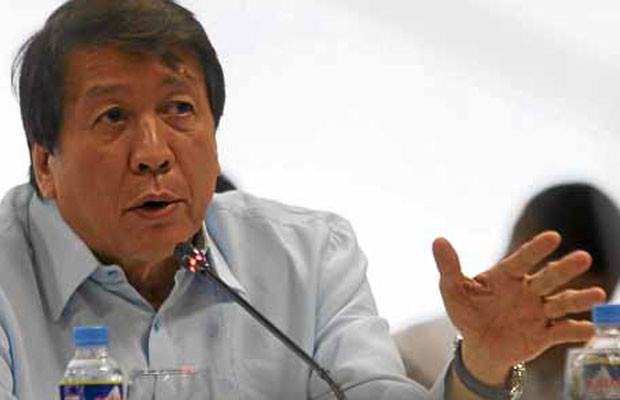Fariñas files bill seeking creation of Philippine Legislative Police

House Majority Leader Rodolfo “Rudy” Fariñas. INQUIRER FILE PHOTO
Majority Floor Leader Rodolfo Fariñas has sought the creation of a Philippine Legislative Police to ensure lawmakers’ safety and enforce the Congress’ subpoena powers.
In his explanatory note for House Bill No. 6208, Fariñas pointed out that Congress currently relies on law enforcement agencies under the Executive branch of government to protect lawmakers and execute contempt orders.
He even cited the case of Senator Leila de Lima’s driver and boyfriend Ronnie Dayan, who was arrested by the Philippine National Police for failing to appear before the House inquiry on the illegal drug trade at the New Bilibid Prison.
“The reliance of Congress on the law enforcement agencies… impairs, to a large extent, the independence of Congress from the Executive Department,” he explained.
“The system of checks and balances fundamentally requires the independence of the branches of government and only through such independence that the ends of government are better achieved,” he added.
Article continues after this advertisementFariñas added Congress does not have enough manpower and capability to protect legislators when they perform duties and consult constituents outside their offices.
Article continues after this advertisementUnder the bill, the PLP’s functions include securing the safety of congressmen, their spouses and their relatives up to the second degree of consanguinity—”upon determination and validation that their lives are under threat.”
The PLP will also protect the properties of Congress, maintain peace and order, prevent crimes, coordinate firearms licenses, and coordinate with other law enforcement agencies for sharing intelligence information on threats to Congress or its members.
The legislative police will also serve subpoenas and warrants issued by Congress.
The PLP will be governed by a PLP Board—chaired by a retired military or police general jointly appointed by the Speaker and the Senate President, and composed of the lawmakers chairing the House and Senate’s respective public order committees and the two chamber’s Sergeants-at-Arms.
The PLP Board will select and promote personnel, deploy its units, resolve complaints and exercise disciplinary powers, and issue policies.
The PLP’s daily operations will be supervised by the House and Senate’s respective Sergeants-at-Arms.
The PLP will also be composed of the PLP Operations Bureau—which will oversee the operational service, protective service (responsible for intelligence gathering and securing congressmen), and security service—as well as the PLP Administrative Bureau.
PLP officers will have the same qualifications, salaries and benefits, and retirement age as members of the Philippine National Police. The ranking system from Legislative Police Officer I to Legislative Chief Superintendent is also equivalent to that of the PNP.
PLP officers must be Filipino citizens with a formal baccalaureate degree, must not be dishonorably discharged from the military or dismissed from the government, and must not have been convicted of a crime involving moral turpitude.
The height requirements are 1.62 meter for males and 1.57 meter for females, while the weight should not be more or less than five kilograms from the standard weight in relation to height, age and sex.
New applicants must be at least 21 years old and no older than 29 for females and 32 for males.
Psychiatric, psychological and physical tests will be conducted randomly and without prior notice to check the officers’ wellbeing and non-use of prohibited drugs.
PLP officers may undergo training and education at the Philippine Public Safety College or equivalent institutions, but the bill allows Congress to establish its own training and education support unit.
Officers may be entitled to benefits and allowances enjoyed by secretariat employees subject to the joint approval of the House and the Senate. The compulsory retirement age is 56 for new entrants and 65 for existing qualified personnel, but officers with 25 years of satisfactory service may apply for early retirement.
Administrative complaints and disciplinary actions fall under the jurisdiction of the PLP Board.
The Board has summary dismissal powers when the charges involve moral turpitude, when the officer has been repeatedly charged, or when the officer is found guilty of conduct unbecoming of an officer. /je